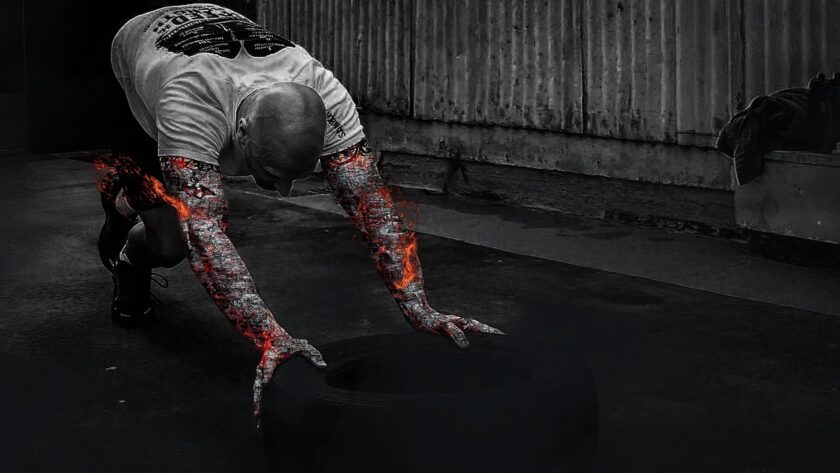Rapid muscle recovery is essential for athletes and bodybuilders who push their bodies to the limit. It’s also necessary for those who want to stay active and avoid injuries. The good news is that you can do a few simple things to speed up muscle recovery. This blog post will share tips to help your muscles recover more quickly after a workout.
Get Enough Sleep
This one might seem like a no-brainer, but it’s worth repeating because it’s so important. When you sleep, your body goes into repair mode and starts working to heal any damage that has been done. That includes repairing muscles that have been worked hard during a workout. So if you want your muscles to recover quickly, ensure you’re getting enough shut-eye. Most adults need 7-8 hours of sleep per night, so aim for that sweet spot.
Eat Right
What you eat plays a significant role in muscle recovery. After a workout, your muscles are depleted of glycogen, their primary energy source. To replenish glycogen stores, eat foods high in carbohydrates and low in fat. Good options include fruits, vegetables, whole grains, and lean proteins.
Use Ice or Heat Therapy
Applying ice or heat to sore muscles can help reduce inflammation and pain. Ice therapy numbs the area and constricts blood vessels, which reduces swelling. Heat therapy dilates blood vessels and promotes blood flow, which can help loosen tight muscles and improve the range of motion. Try using ice for 24-48 hours after a workout, then switch to heat if the pain persists.
Take Supplements
Certain supplements can also help with muscle recovery. Creatine is one such supplement; it’s been shown to increase strength and power output while reducing recovery time between workouts. Another option is branched-chain amino acids (BCAAs), which can help reduce exercise-induced muscle damage and promote protein synthesis (the process by which new muscle tissue is created). If you’re looking for an all-in-one solution, many protein powders on the market contain both creatine and BCAAs. Just read the labels carefully to ensure you’re getting what you want—and nothing you don’t!
Incorporate Yoga Into Your Routine
Yoga is a great way to stretch and strengthen muscles, increase the range of motion, and improve flexibility. These things can help your muscles recover more quickly after a workout. Something like hatha yoga for beginners is an excellent place to start if you’re new to yoga; it’s a relatively slow and gentle practice focusing on basic poses and breathwork. In addition to helping with muscle, it is also known to relieve stress. There are many different types of yoga, so find one that suits your needs and interests.
Take Epsom Salt Baths
Epsom salt is a magnesium sulfate that can be dissolved in water. When you soak in an Epsom salt bath, the magnesium is absorbed through your skin and into your muscles, which helps reduce inflammation and pain. Add two cups of Epsom salt to a warm bath and soak for 20 minutes. You can do this once or twice a week as needed.
Get a Massage
A massage can do wonders for sore muscles. It helps to increase blood flow and reduce inflammation while also breaking up knots and relieving tension. If you don’t have time (or money) for a professional massage, many self-massage tools on the market can help, including foam rollers, tennis balls, and massage sticks.
Acupuncture
Acupuncture is an ancient Chinese healing practice that involves inserting thin needles into the skin at specific points on the body. It’s thought to stimulate the nervous system and promote the release of pain-relieving chemicals like endorphins. While some scientific evidence supports the use of acupuncture for pain relief, it’s not clear how it might help with muscle recovery specifically. However, it’s generally considered safe and may be worth a try if you’re looking for additional ways to reduce pain and inflammation.
Hydrate, Hydrate, Hydrate
Staying adequately hydrated is essential for overall health and well-being, but it’s necessary when trying to recover from a workout. When you sweat, you lose water and electrolytes like sodium and potassium. So drinking plenty of fluids helps to replace lost fluids and electrolytes, which can help reduce muscle soreness. Aim to drink 8-12 cups of water daily, and more if you’re sweating a lot. You can also get electrolytes from foods like bananas, oranges, and leafy green vegetables.
In conclusion, there are many things you can do to help your muscles recover from a workout. Try incorporating some or all of the above tips into your routine and see how they work. Your muscles will thank you!



